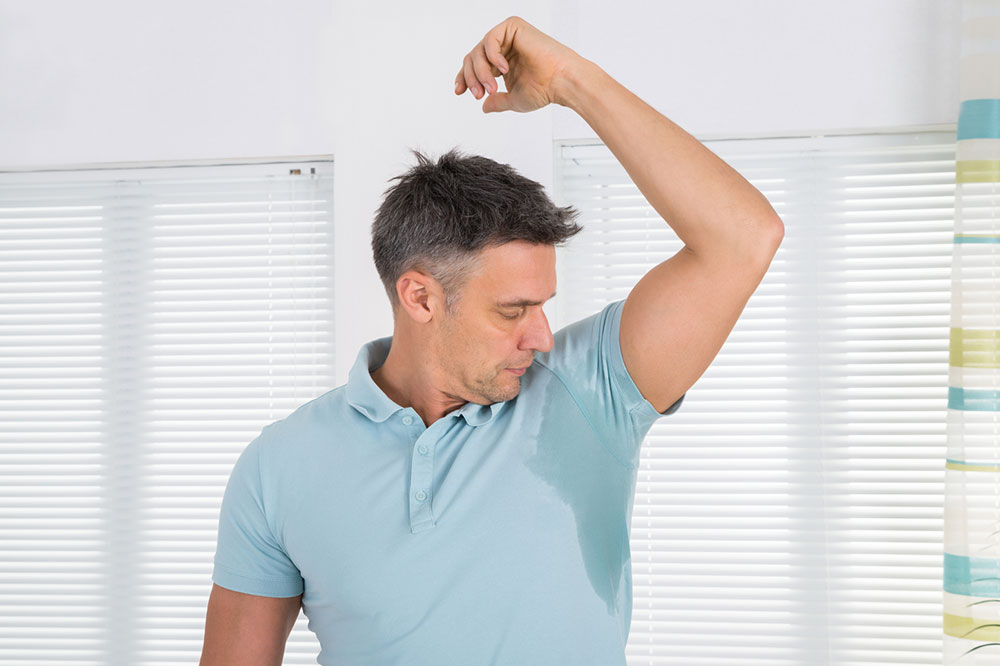
Common Triggers for Hyperhidrosis
Hyperhidrosis means abnormal or excessive sweating, which does not occur as a result of any exercise or hot weather. In hyperhidrosis, one might experience unrestrained sweating that it soaks their clothes and wets their hands. In addition to hampering day-to-day activities, it can also lead to social embarrassment and anxiety.
In the country, approximately 4.8% of people suffer from hyperhidrosis, which accounts for somewhere around 15.3 million people. Moreover, since it is often underdiagnosed or underreported, the actual rate might be higher. Here is a list of risk factors or the common triggers for hyperhidrosis or heavy sweating, which makes some people more vulnerable to it than others. These include:
Age
Primarily, hyperhidrosis is common in younger adults who are between the age of 18-39. However, actual symptoms might be experienced earlier between the age of 14-25. There have been cases of hyperhidrosis in infants, too. However, the development of hyperhidrosis is rarest in people over the age of 65, adolescents, and children.
Sex
There’s no distinction in the incidence rates. However, women are more susceptible to be affected in their axillae areas, and the men are likely to have this problem in their craniofacial areas.
Genetic
It is believed that people with hyperhidrosis have a family history of the condition. So if a person’s parents had this problem, their chances of developing it are higher.
Additional causes for secondary hyperhidrosis
Our body uses sweating as a pivotal mechanism to get rid of the heat. So, when one is around something that triggers sweating or when a person’s body temperature increases, their sweat glands are stimulated. As a result of this, sweating occurs.
Normally, sweating is common, but when a person is nervous, they’ll experience sweaty palms. As such, there is no medical reason for primary hyperhidrosis. However, secondary hyperhidrosis might occur as a result of a certain medical condition. Although it is not common, it can lead to sweating all across the body if it occurs.
Some common triggers for hyperhidrosis or heavy sweating in secondary stages include:
- Hot flashes during menopause
- Diabetes
- Thyroid-related problems
- Low blood sugar levels
- Infections
- Heart attack
- Disorders related to the nervous system
- Adrenal gland disorders
- Stroke
- Spinal cord injury
- Lung disease
- HIV
- Tuberculosis
- Parkinson’s disease
Other triggers of hyperhidrosis are listed below:
Medications
At times, a few over-the-counter and prescription medications can trigger hyperhidrosis as a side effect. Sweating is usually one rare side effect, and most people do not experience it. However, for somebody who’s taking antidepressants, such as protriptyline, nortriptyline (Pamelor), or desipramine (Norpramin), hyperhidrosis could be a common side effect.
Mineral dietary supplements
People who consume mineral dietary supplements, such as zinc, or take dry mouth medications, such as pilocarpine, also experience hyperhidrosis.


